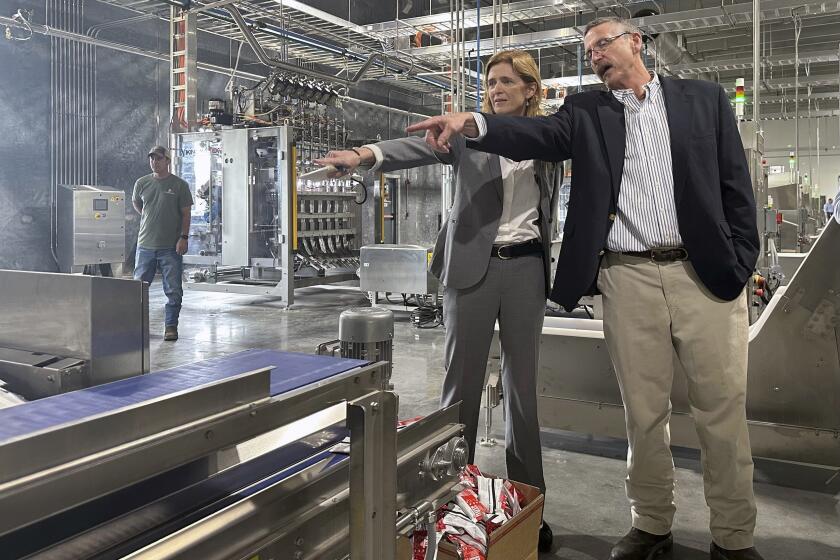An Obsession With Secrecy
At the heart of the bipartisan grumbling over the belated agreement to let Condoleezza Rice appear publicly before the independent panel probing the 9/11 attacks is this fundamental principle: The people in a democracy have a right, indeed an obligation, to probe the thought processes that their leaders pursued to arrive at policies; citizens also have a right to reach their own judgments about the soundness of those decisions. The more momentous the policy, the more urgent is the public’s obligation.
Rice, the president’s national security advisor, got presidential assent Tuesday to testify in public and under oath before the panel about Bush administration efforts to preempt terrorism. The White House had resisted that call from GOP and Democratic panelists, claiming her appearance would violate the Constitution’s separation of powers and compromise her ability to give the president candid advice. But Rice undercut those arguments by talking plenty in press interviews, including Sunday’s “60 Minutes.”
Rice’s appearance should have been an easy call. That it wasn’t illustrates this administration’s disregard for the public’s right to know. From the first days of his presidency, George W. Bush and his top advisors have blocked testimony from public officials and shut off access to government documents and data that long have been in the public domain.
Presidential executive orders for the first time empower the secretaries of Agriculture and Health and Human Services, along with the Environmental Protection Agency’s top administrator, to classify public records. Federal officials now routinely seal records Americans need to see -- and could before Bush. These records include data on drinking water contamination, auto safety and the sites of potential chemical hazards in communities. Vice President Dick Cheney still insists that his 2001 closed-door meetings with corporate energy chiefs -- meetings that produced a national energy policy long on tax subsidies for those same firms -- are not the public’s business. Bush, through executive order, has trimmed the Freedom of Information Act and, flouting a 1978 act of Congress, has blocked release of many of the presidential papers of Ronald Reagan, his father, George H. W. Bush, and Bill Clinton.
For Bush, the Sept. 11 attacks offer a post hoc rationale for an obsession with secrecy that rivals that of any modern president. National security concerns certainly dictate caution involving matters of intelligence and troop movements. But the president and his advisors strain credulity and democracy by insisting, as they have, that citizens have no right to learn whether the tires on their cars could explode or what this administration did with information it had on terror threats.
More to Read
Start your day right
Sign up for Essential California for news, features and recommendations from the L.A. Times and beyond in your inbox six days a week.
You may occasionally receive promotional content from the Los Angeles Times.






